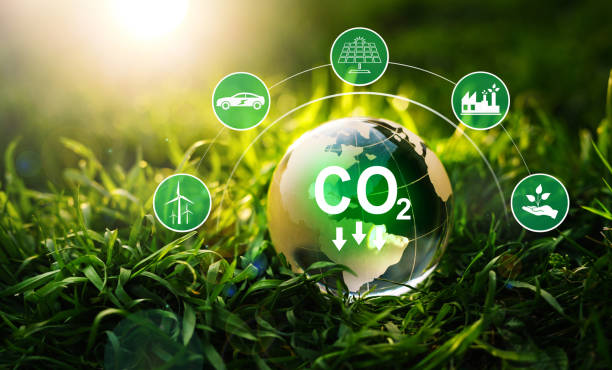
FAQ About Green Economy
Green Economy
2 years ago | gizem
What sectors are involved in the Green Economy?
The Green Economy encompasses a wide range of sectors that contribute to sustainable development, resource efficiency, and environmental protection. These sectors adopt practices and technologies that prioritize the well-being of the planet and its inhabitants. Here are some key sectors involved in the Green Economy:
- Renewable Energy: This sector includes solar, wind, hydroelectric, geothermal, and biomass energy production. Renewable energy sources replace fossil fuels, reducing greenhouse gas emissions and promoting clean energy generation.
- Energy Efficiency: Energy-efficient technologies and practices are implemented in industries, buildings, transportation, and appliances to reduce energy consumption and minimize waste.
- Sustainable Agriculture: This sector promotes practices such as organic farming, agroforestry, and permaculture to conserve soil, water, and biodiversity while ensuring food security and reducing the environmental impact of agriculture.
- Green Building and Construction: Green building practices focus on energy-efficient design, renewable energy integration, sustainable materials, and efficient water use to reduce the environmental footprint of construction projects.
- Circular Economy and Recycling: Sectors involved in recycling, waste management, and the circular economy promote the reuse and recycling of materials, reducing the need for new resource extraction and minimizing waste generation.
- Water Management: This sector focuses on efficient water use, wastewater treatment, and conservation measures to ensure the availability of clean water resources for both human consumption and ecosystem health.
- Transportation and Mobility: Green transportation includes electric vehicles, public transportation, cycling infrastructure, and pedestrian-friendly urban planning to reduce emissions and traffic congestion.
- Eco-Tourism and Sustainable Travel: This sector emphasizes low-impact tourism that supports local communities, protects natural habitats, and promotes cultural preservation.
- Waste Reduction and Management: Industries involved in waste reduction, recycling, composting, and waste-to-energy technologies contribute to minimizing landfilling and promoting resource recovery.
- Eco-Friendly Products and Services: Sectors producing sustainable and eco-friendly products, from clothing to consumer goods, cater to environmentally conscious consumers.
- Forestry and Ecosystem Restoration: Sustainable forestry practices focus on maintaining healthy forests, combating deforestation, and promoting ecosystem restoration to preserve biodiversity and carbon sequestration.
- Green Finance and Investment: Financial institutions that prioritize sustainable investments, green bonds, and environmentally responsible financing contribute to the growth of the Green Economy.
- Environmental Consulting and Services: These sectors provide expertise in environmental assessments, sustainability reporting, and eco-friendly business practices.
- Clean Technology: Companies involved in developing and manufacturing clean technologies, such as energy-efficient appliances, electric vehicles, and renewable energy systems, play a critical role in advancing the Green Economy.
- Conservation and Biodiversity: Organizations working in wildlife conservation, habitat restoration, and biodiversity protection contribute to maintaining the health and resilience of ecosystems.
- Education and Research: Institutions focusing on environmental education, research, and advocacy contribute to raising awareness and promoting sustainable practices.
